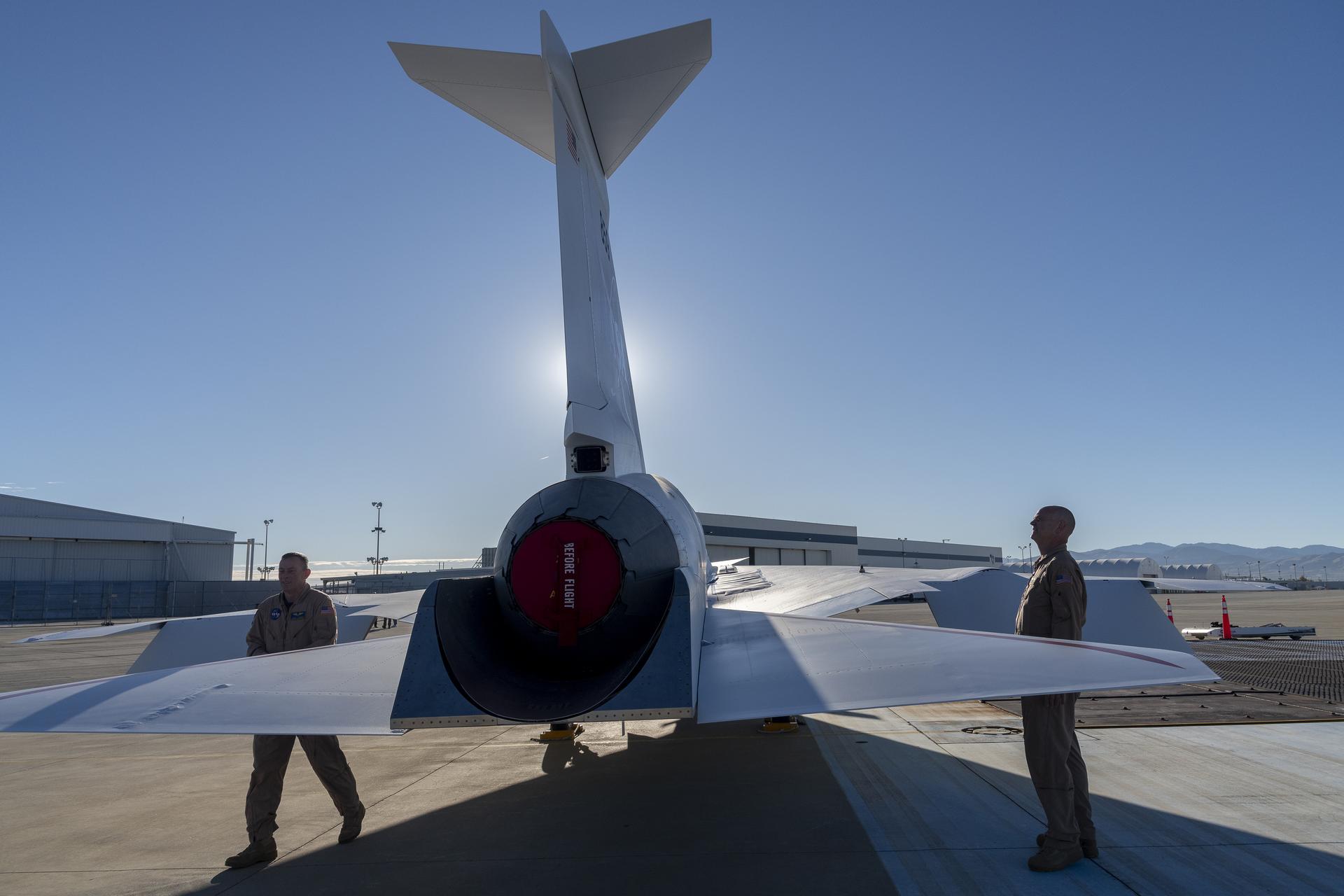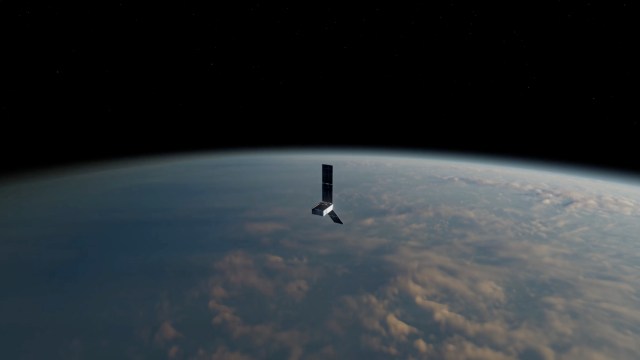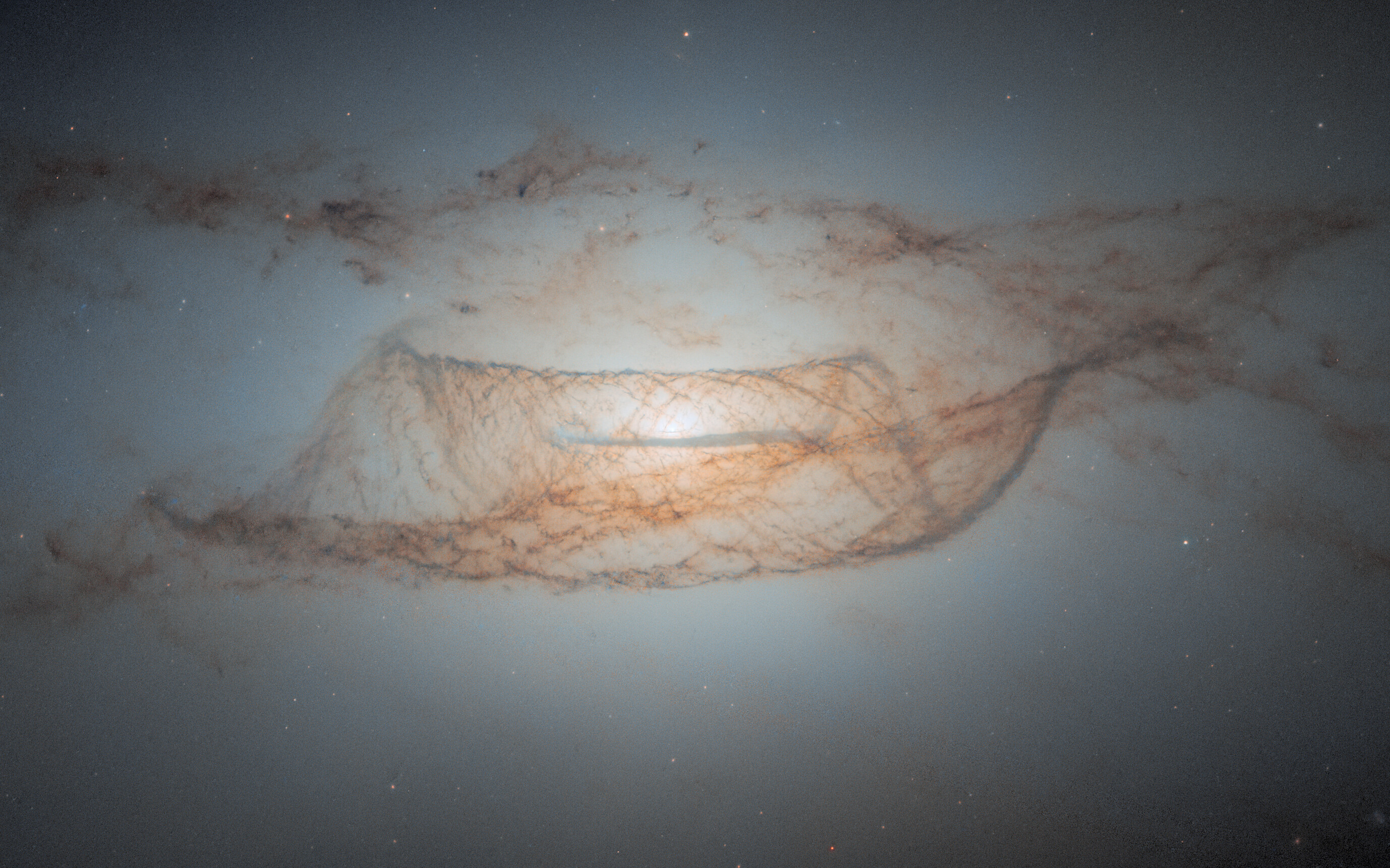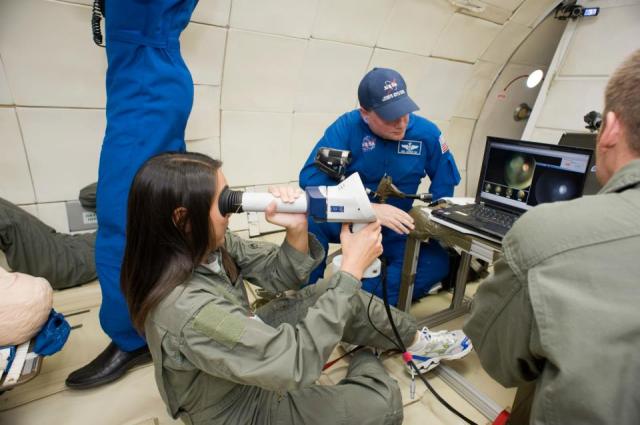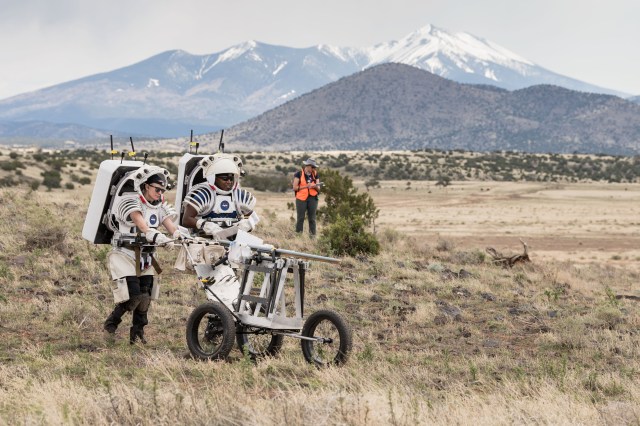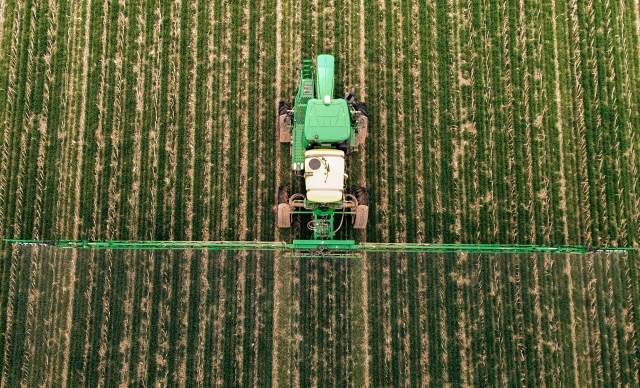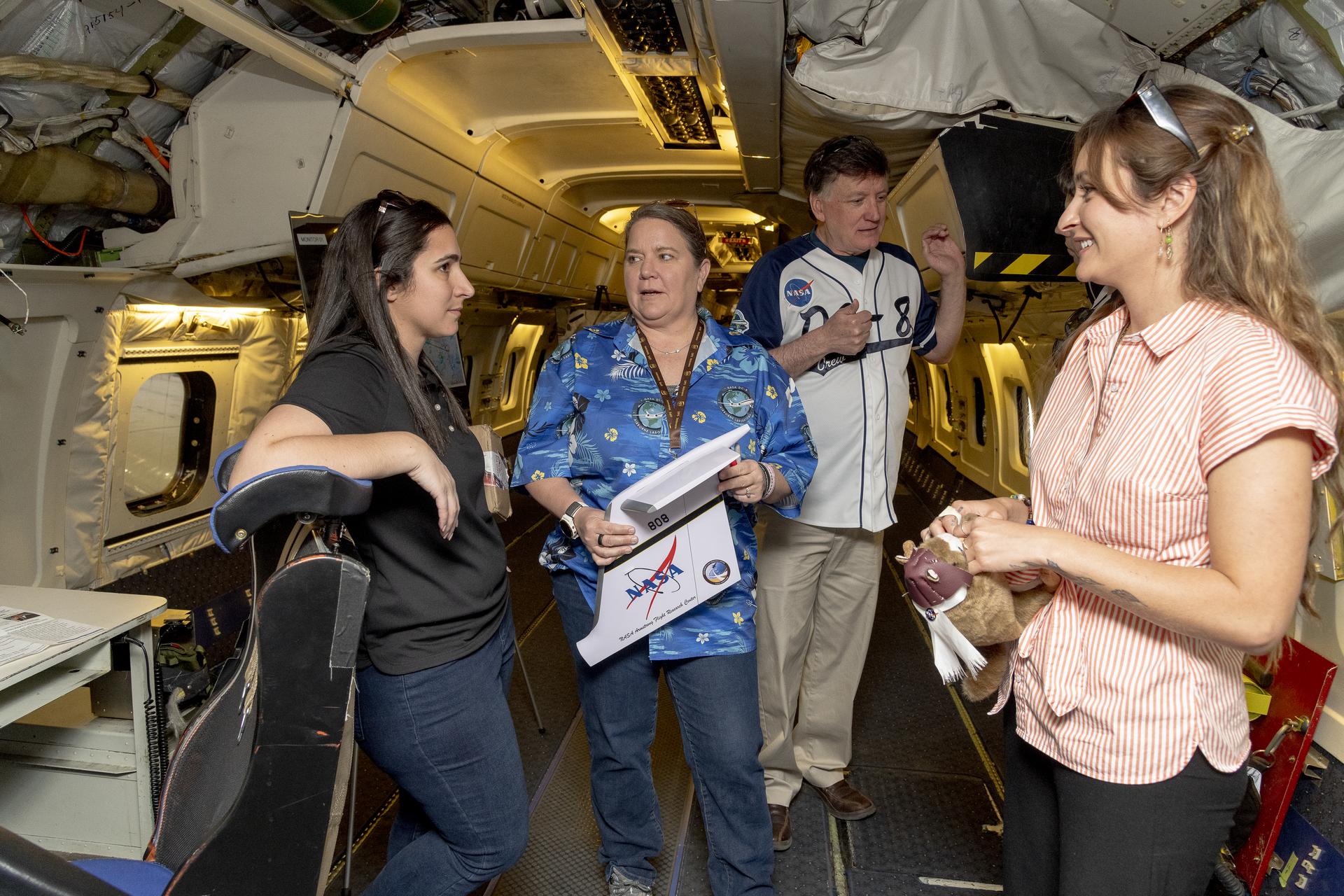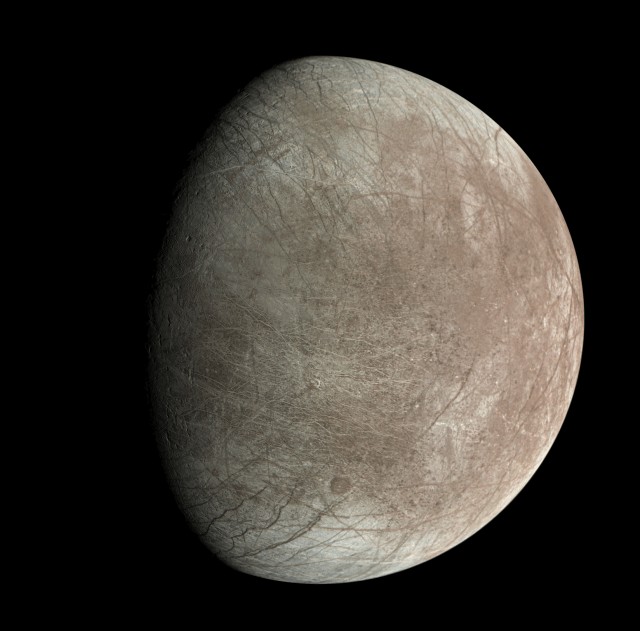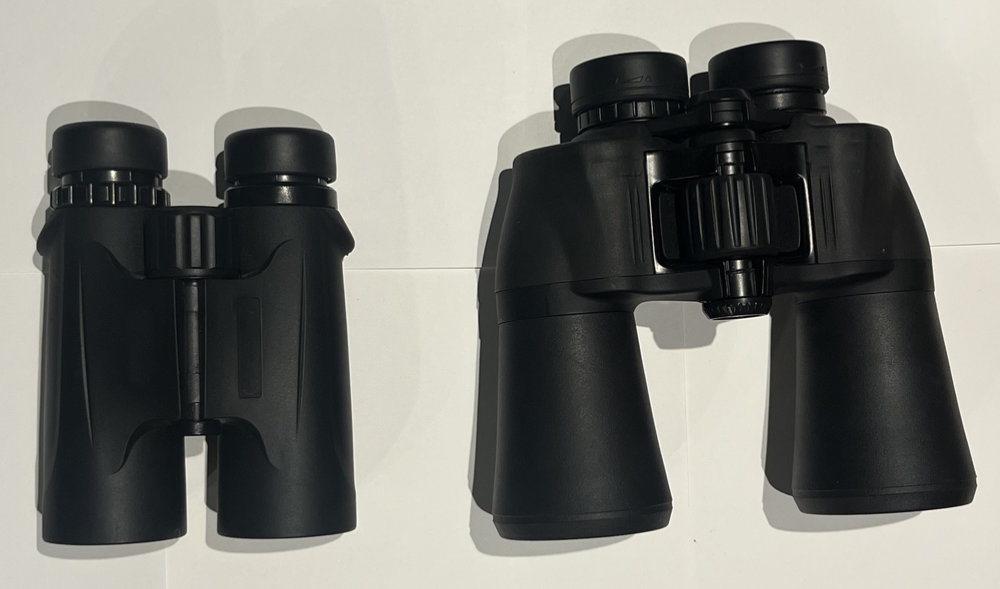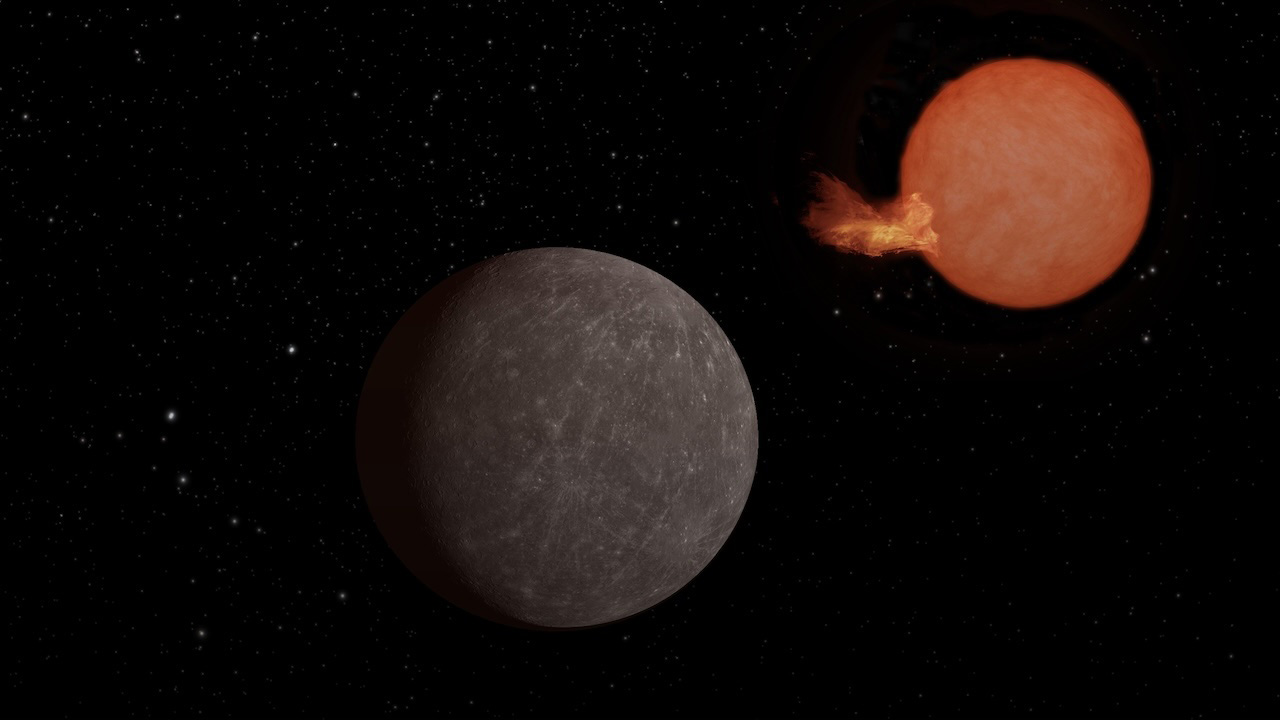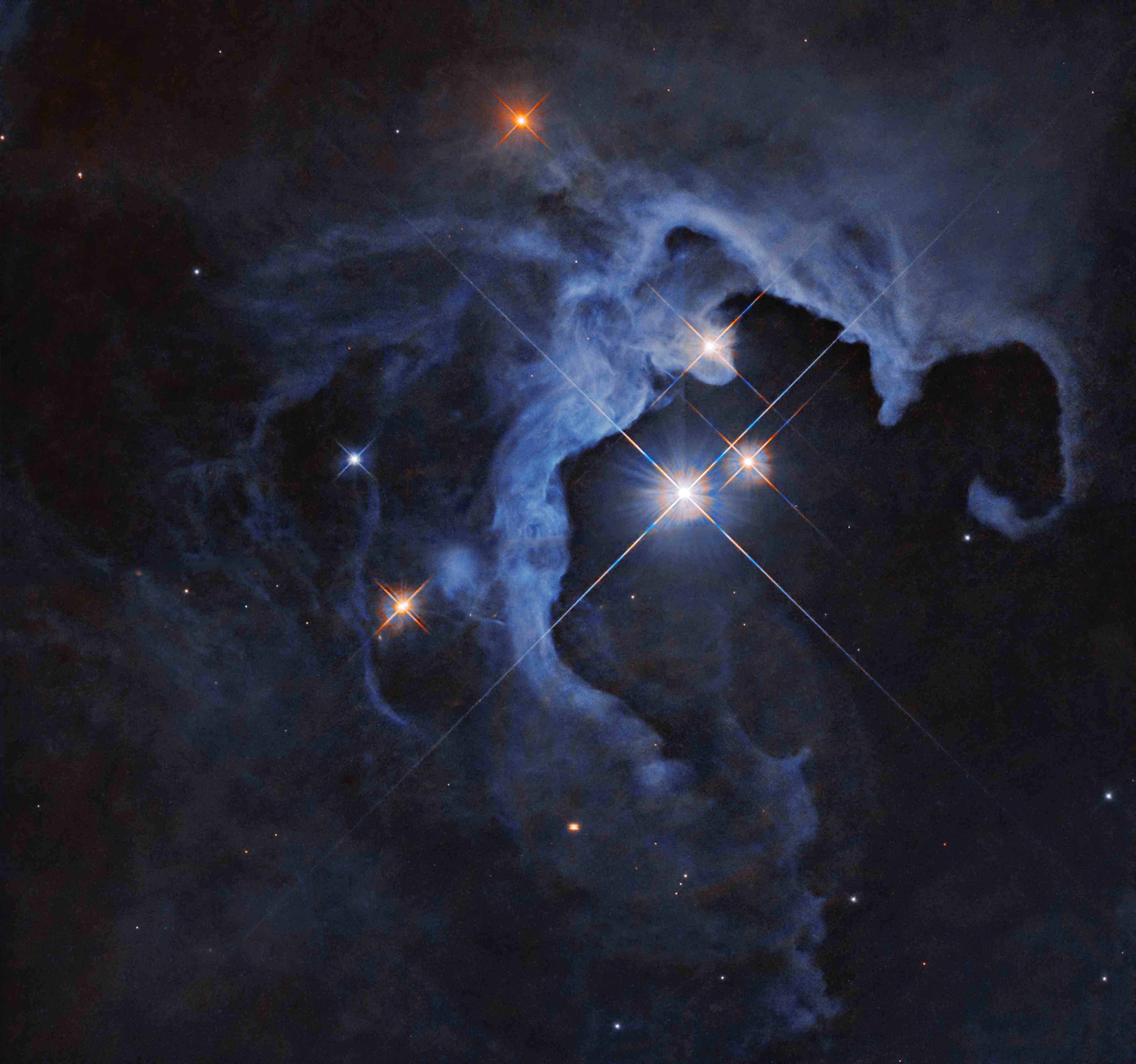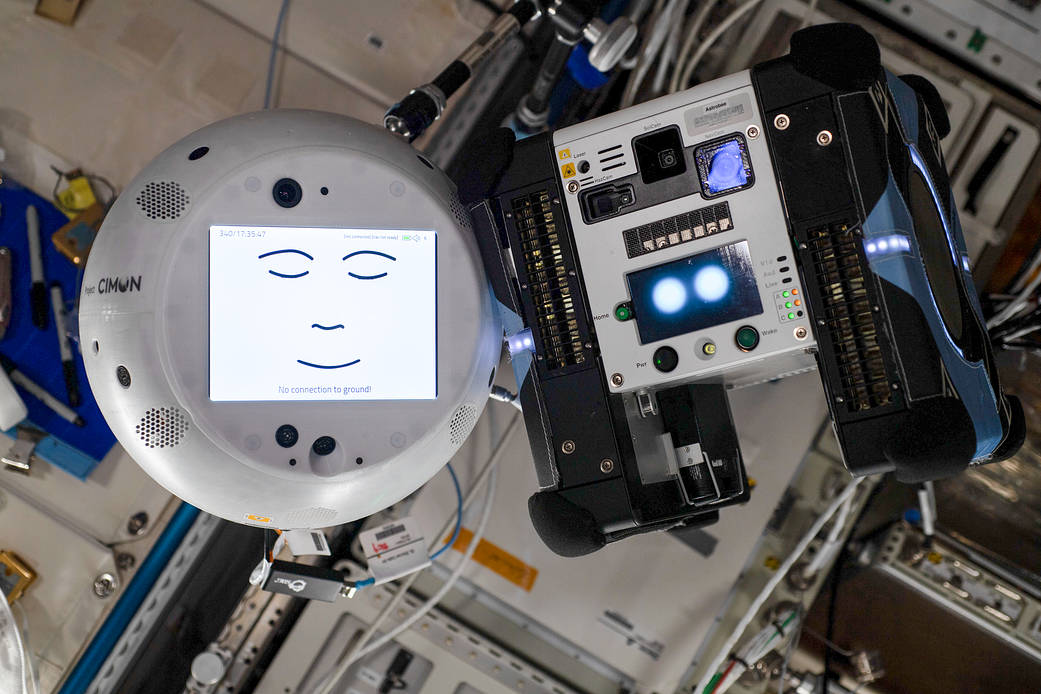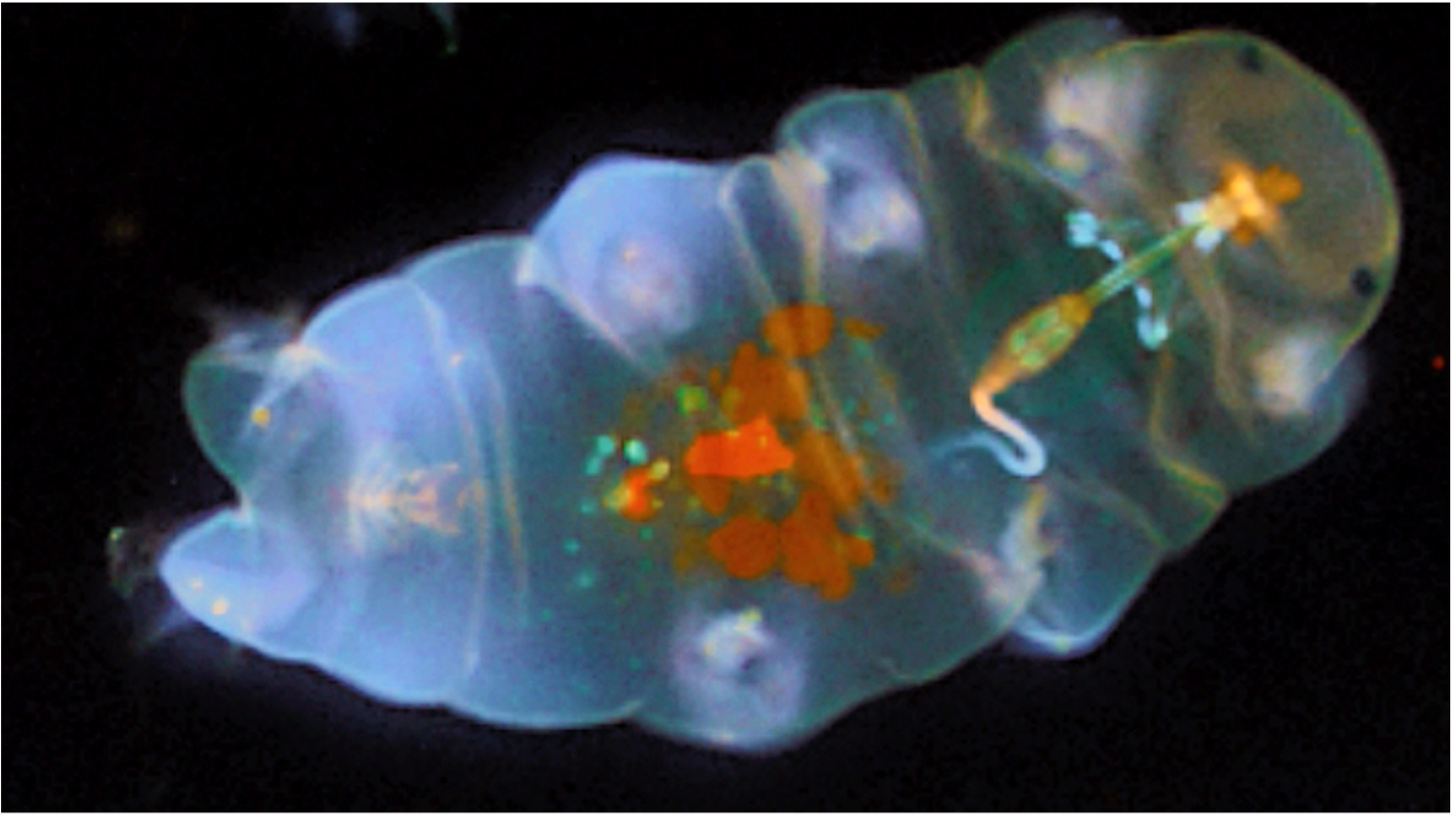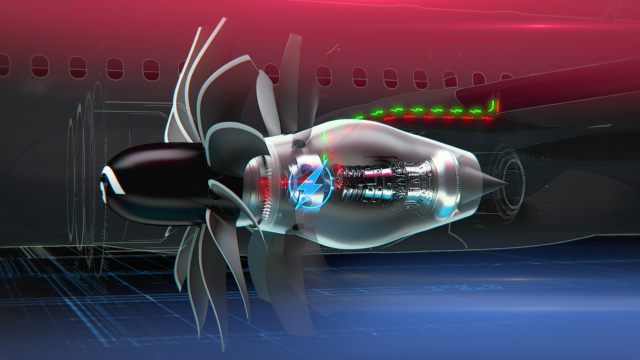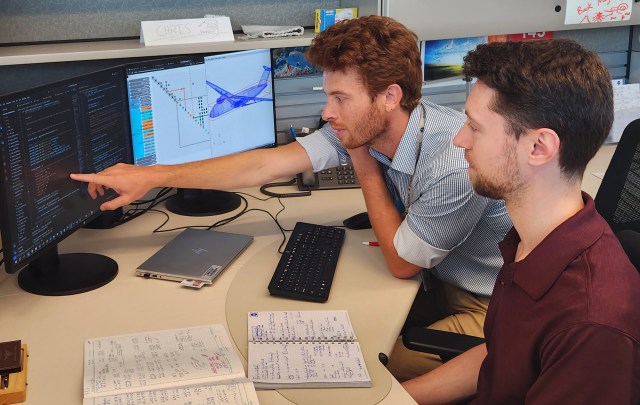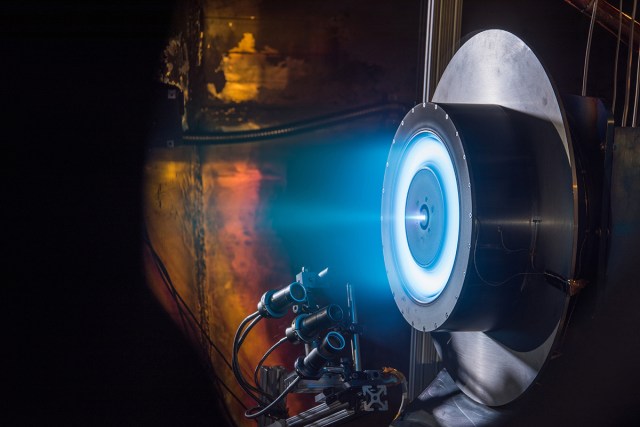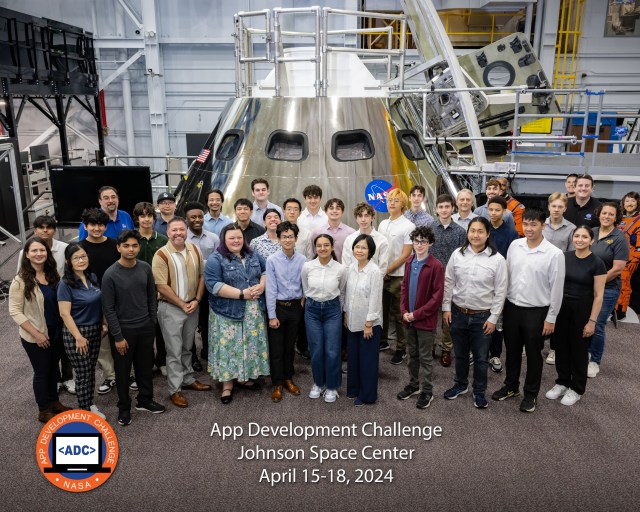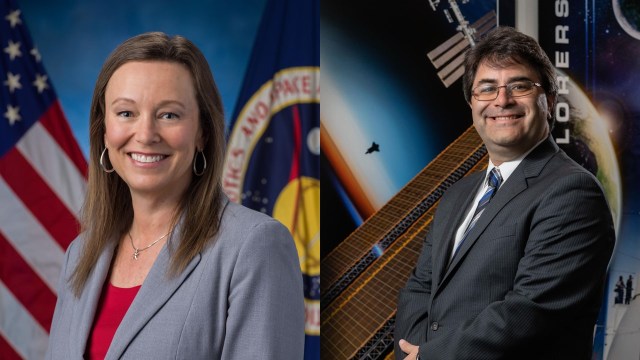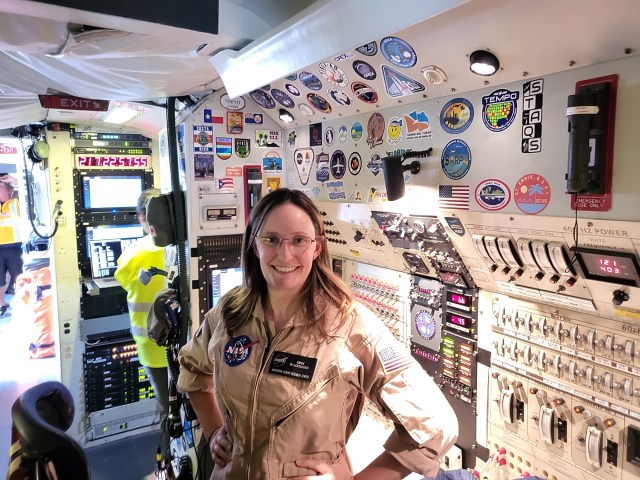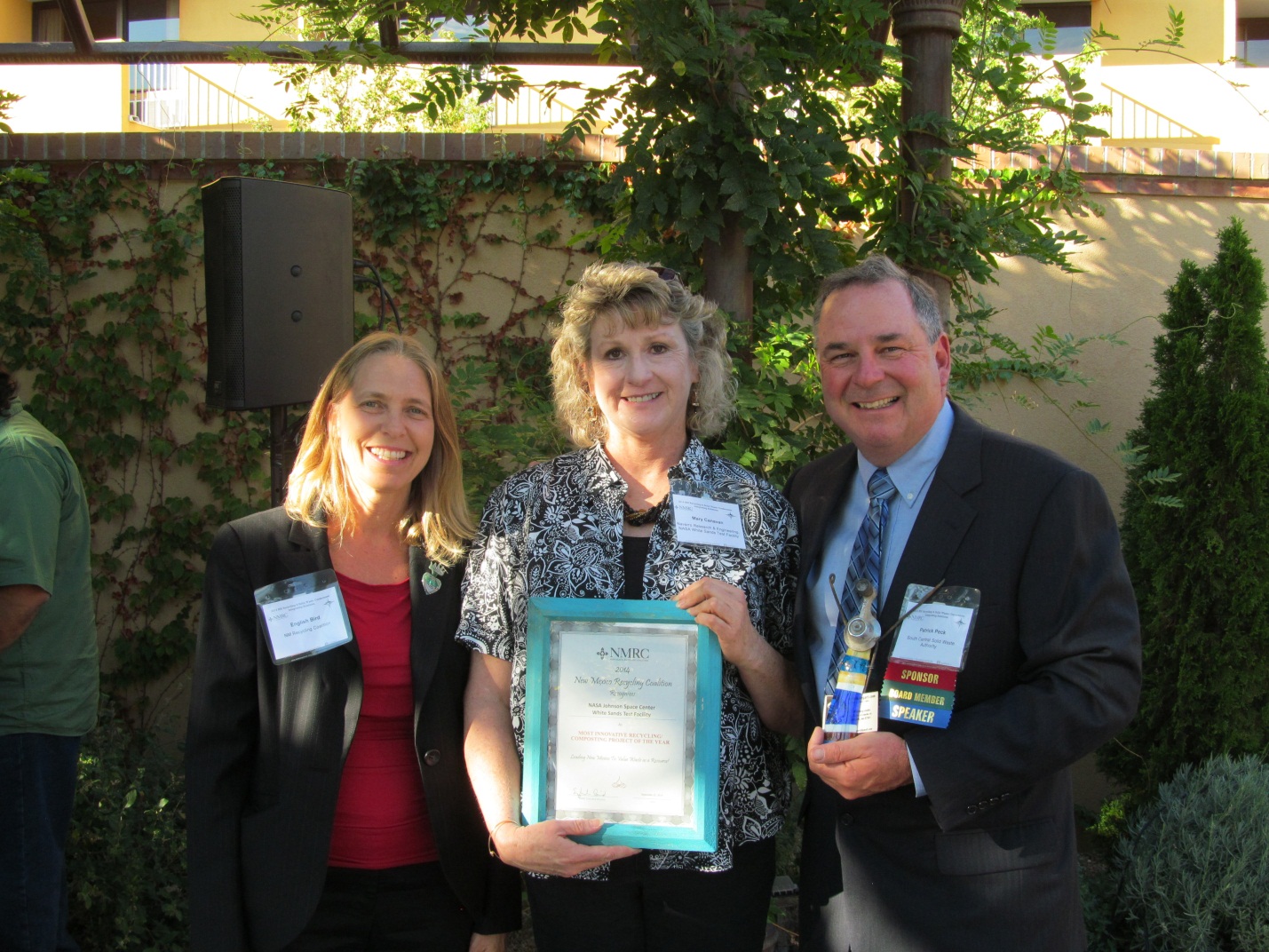NASA White Sands Test Facility is the recipient of the 2014 New Mexico Recycling Coalition (NMRC) award for the Most Innovative Recycling Project of the Year. The site was recognized for the recycling of the Space Shuttle Fuel Cell Plates and the subsequent reclamation of precious metals, including gold, platinum, and palladium. The proceeds from the sale of the precious metal were then used to fund a variety of “green” projects developed by WSTF employees.
The fuel cell project stemmed from a unique opportunity. Following the 2012 retirement of the Space Shuttle program, WSTF held the spent Shuttle fuel cell plates in drum storage. NASA WSTF’s Christina Pina Arpin, Project Manager of the Component Services Section (CSS) in the Technical Services Office recognized the potential value of the materials and investigated the possibility of recycling the fuel cell plates. Once it was determined that the precious metals contained in the plates could be recovered and sold, the project was launched. “We took the initial effort to find out about recycling the precious metals to fund our environmental projects,” said Piña Arpin. “It is nice to be recognized for our efforts.”
A team of WSTF engineers, CSS personnel, environmental scientists, logistics administrators, safety personnel, and managers worked through a long and arduous process to recycle responsibly and ensure that WSTF remained a good steward of the environment. The team performed due diligence to ensure that all materials (including asbestos) were handled in a manner compliant with regulatory requirements.
The generated funds from the precious metal sales were designated for “green” projects. Site employees were invited to develop and submit “green” project proposals for consideration. Forty-three innovative project proposals have been submitted by employees from all areas of the site. Federal requirements for the use of recycling revenue are specified in Executive Order (EO) 13423 – Strengthening Federal Environmental, Energy, and Transportation Management. This EO identifies that Public Law 103-329 Section 608 defines the types of projects that may be funded with recycling revenue. WSTF projects were considered for “green” project funding if they met federal funding criteria for one of the following categories: Sustainable Acquisition, Waste Prevention, Recycling Programs, Hazardous Waste Management, or Pollution Prevention.
WSIT established a procedure for soliciting and evaluating “green” project proposals to determine which would be recommended for funding. A NASA Sustainability Project Review Board was established to make the final decision to fund projects that met the above requirements and provided the most benefit to WSTF. “Over the last several years, WSTF has developed a culture of sustainability, leading employees to identify opportunities to green the site,” says Mary Canavan, a member of the White Sands Test Facility Sustainability Initiative Team. “The fuel cell parent project generated both the funds and the incentive to develop a site-wide program that would benefit the site and the environment.”
The 20kW Photovoltaic System for the WSTF Forward Guard Gate, the B272 Efficient Lighting Upgrade, the B120 Efficient Lighting Upgrade, the Forward Guard Gate Exterior LED Project, the 100 Area LED Lighting Project, the B104 Efficient Lighting, and a 1 MWh Solar Project were all funded by the generated Space Shuttle Fuel Cell recycling funds.
This award truly belongs to the entire WSTF community. Beginning with the initial Space Shuttle fuel cell recycling project, personnel across the site used their expertise and experience to recognize opportunities for reducing the site’s environmental impact. Their creativity is reflected in the innovative “green” projects proposals that provide sustainable solutions. It is apparent that a sustainability culture has become embedded in the WSTF work ethic. WSTF has achieved this recognition because of the employees’ commitment to the site and to the environment.


